My Last Friend is here for the long run.
—Adam Silvera, They Both Die at the End
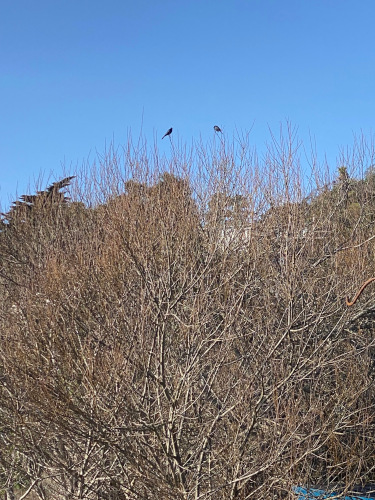
Are you my Last Friend?
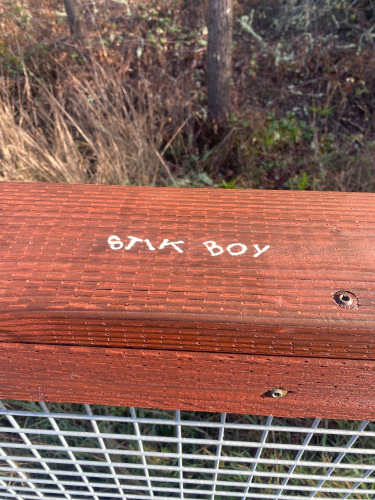
Are you going to stick?
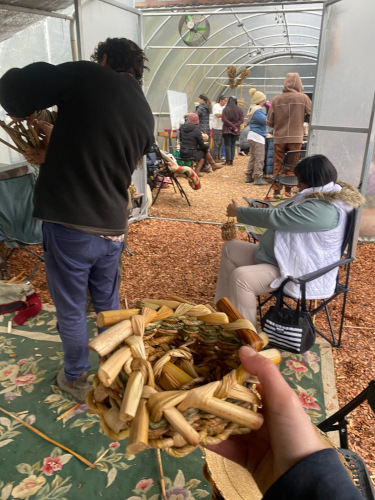
He twirled me and I twirled him; he brought me in close and I followed. He curled me into him and he spun me out. Everyone was clapping. And we looked into each other’s eyes, and we forgot ourselves.
. . . A sleepy heat spread through me like the sunshine trapped in sand.
—Allegra Goodman, Paradise Park
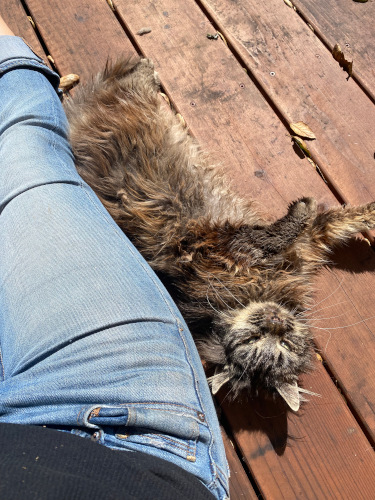
We go together somehow, anyway.
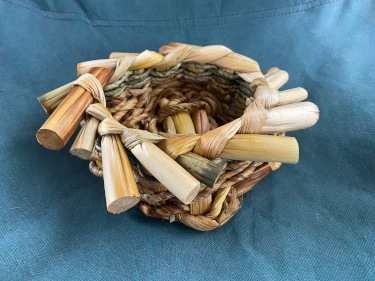
One basket case with another.
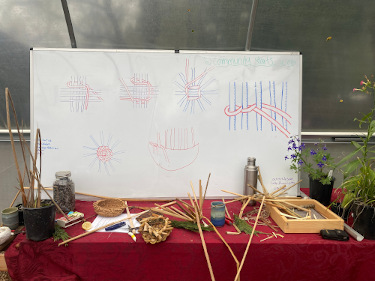
It takes both great courage and great vulnerability to live outside concepts, to meet each new experience, each new relationship, each new emotional landscape on its own terms and let it in turn expand the terms of living.
—Maria Popova, “The Other Significant Others: Living and Loving outside the Confines of Conventional Friendship and Compulsory Coupledom”
It just takes time to get a handle on things.
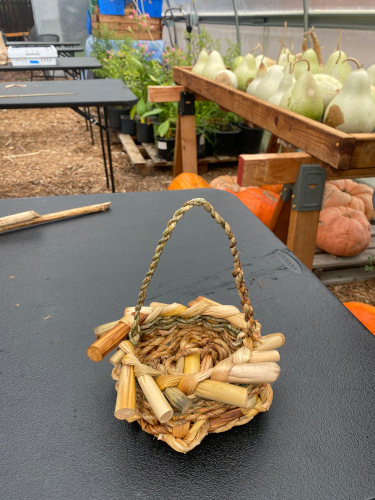
. . . Even the richest in money is poorer in most ways than a hunter-gatherer, traditional pastoralist, remote peasant villager, or anyone living in what Orland Bishop calls “cultures of memory,” as pilgrims to the Hadza or Quero or Kogi or other remote, gift-based societies will readily confirm.
—Charles Eisenstein, “Machines Will Not Replace Us”
Getting a handle and gaining control aren’t quite the same thing, though.
I felt really wobbly when he first got going, but as he picks up a good enough speed to throw a breeze our way, I appreciate the control I’m entrusting to him.
It’s freeing.
—Adam Silvera, They Both Die at the End
It’s about discovering how best to hold whoever we’re mooning over.
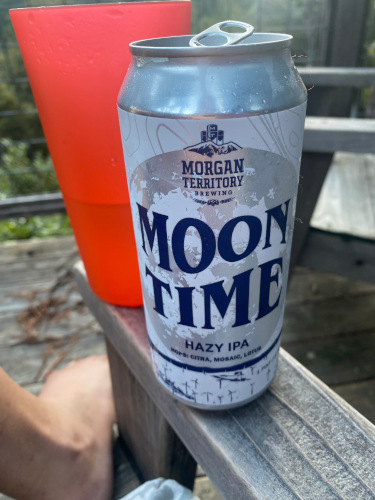
In the middle of the journey of our life I found myself within a dark woods where the straight way was lost.
—Dante Alighieri, Inferno
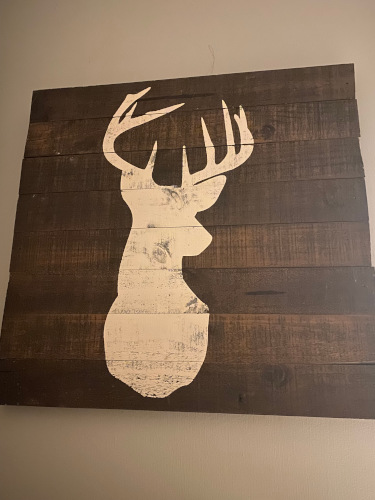
Maybe I didn’t see my way out of my problems, but I was always ready for a solution to come along. That’s huge: readiness. As Hamlet once said, it’s “all.” You have to be open to ideas. You have to be ready—you have to be on your toes—then, boom! Your whole life might be transformed. All of a sudden you’re looking at a whole different picture.
—Allegra Goodman, Paradise Park
The Beloved can take many forms.
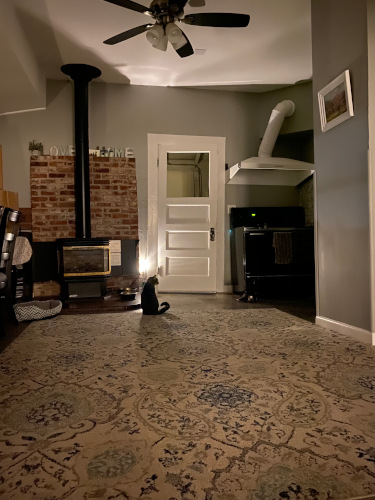
But what is Night Raid actually trying to say? Perhaps the song attempts to present the idea that the everyday human gesture is always a heartbeat away from the miraculous—that ultimately we make things happen through our actions, way beyond our understanding or intention; that our seemingly small ordinary human acts have untold consequences; that what we do in this world means something; that we are not nothing; and that our most quotidian human actions by their nature burst the seams of our intent and spill meaningfully and radically through time and space, changing everything. Night Raid tells us that our deeds, no matter how insignificant they may feel, are replete with meaning, and of vast consequence, and that they constantly impact upon the unfolding story of the world, whether we know it or not.
—Nick Cave, The Red Hand Files #216
Everything depends on going through the door.
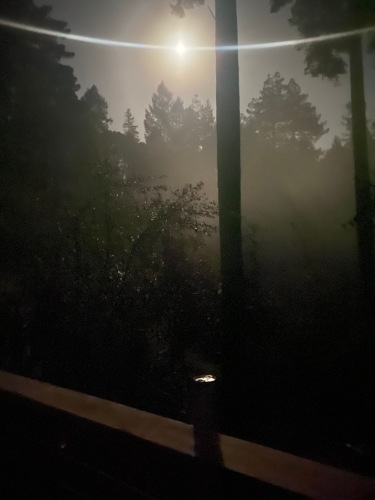
Have a peek first, if you like.
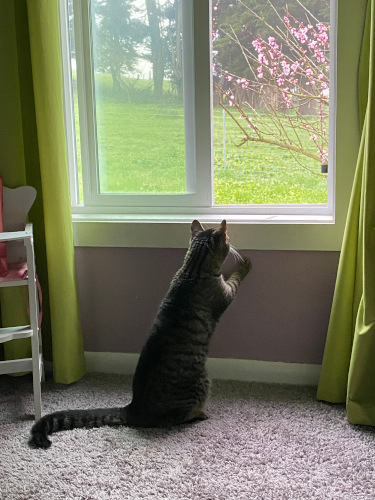
If we look with curiosity at people who do not share our values, they become interesting rather than threatening.
—Nick Cave, The Red Hand Files #252
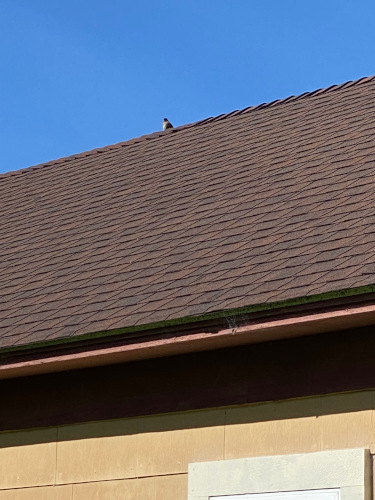
Sooner or later, the big stories you peek at will peek back at you.
And I longed to be there, although in the dream I was there already; but I had a great yearning towards this house, for it was my real home. And as I felt that, the lamp was dimmed and the house went dark, and I saw that the fireflies were out and glowing, and there was the smell of milkweed blossoms from the fields all around, and the warm damp air of the summer evening against my cheek, so mild and soft. And a hand was slipped into mine.
And just then there was a knocking at the door.
—Margaret Atwood, Alias Grace
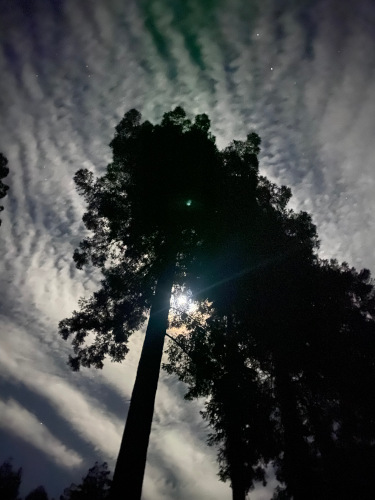
I think it’s time we stop being bashful about one of the very best things humanity can still claim.
We love love. We love love stories. Why is this shameful? . . .
How do we get people to fall in love with the earth again?
I think it is through love stories and a healthy dose of smut. I think it is through propulsive storytelling that cares more for ecologies of relationship than for literary acrobatics.
Give me spice. Give me dragons. Give me romance. Give me back an earth where the mountains and rivers and trees can talk.
—Sophie Strand, “Why We Need Romantasy”
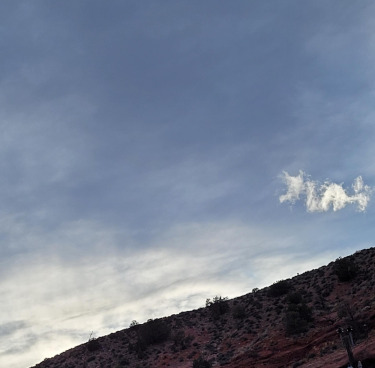
Then one looked back again at the blue; and rapidly, very very quickly, all the colors faded; it became darker and darker as at the beginning of a violent storm; the light sank and sank; we kept saying this is the shadow; and we thought now it is over—this is the shadow; when suddenly the light went out.
—Virginia Woolf, A Writer’s Diary
The door at the end opens. Inside it is the sea.
—Margaret Atwood, Alias Grace
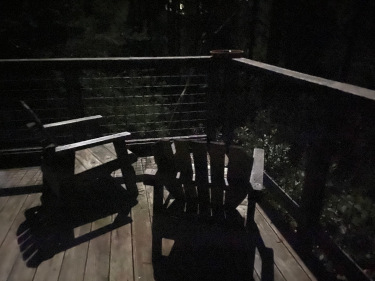
Have a seat, if you’re so inclined.
I had very strongly the feeling as the light went out of some vast obeisance; something kneeling down and suddenly raised up when the colors came. They came back astonishingly lightly and quickly and beautifully in the valley and over the hills—at first with a miraculous glittering and ethereality, later normally almost, but with a great sense of relief. It was like recovery. We had been much worse than we had expected. We had seen the world dead. This was within the power of nature.
—Virginia Woolf, A Writer’s Diary
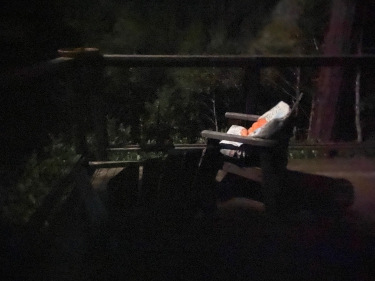
Just know that the story can’t be controlled, only explored.
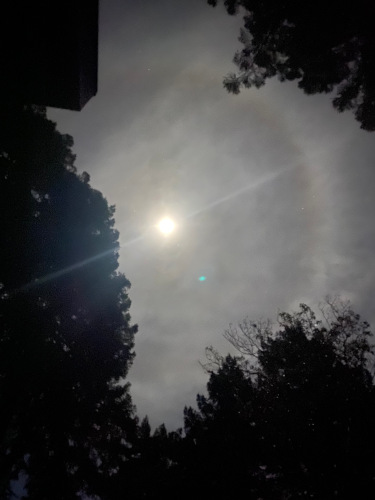
“. . . What did he say?”
“That love is a superpower we all have, but it’s not always a superpower I’d be able to control. Especially as I get older. Sometimes it’ll go crazy and I shouldn’t be scared if my power hits someone I’m not expecting it to. . . .”
—Adam Silvera, They Both Die at the End
See?
All this light was pouring in on me, and I started to open my eyes. I didn’t know where in the world I was, and I reached over, but no one was there.
—Allegra Goodman, Paradise Park
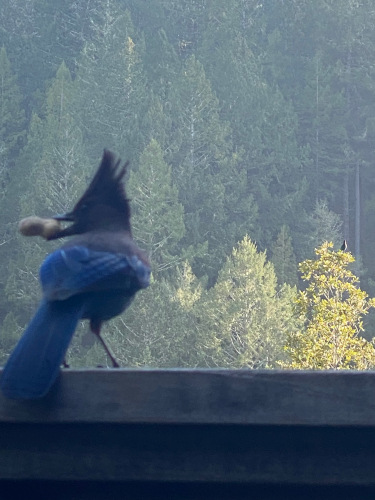
There’s a hazardous sadness to the first sounds of someone else’s work in the morning; it’s as if stillness experiences pain in being broken.
—Jonathan Franzen, Freedom

Lovers hold each other in all kinds of ways—including in absence, when it’s time to be alone.
It’s a big wall.
But it’s a big pile of dirt, and I’m a big artist.
I slap handfuls of mud on the warm cement. I make a handprint.
—Katherine Applegate, The One and Only Ivan
It’s a kind of home.
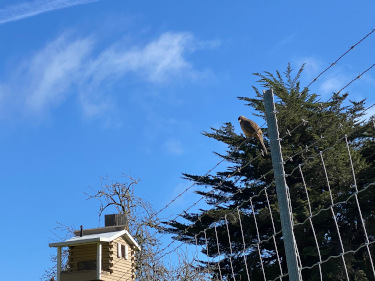
Into the glade fluttered small birds of half a dozen varieties drawn by the anguished outcries of the tiny parents. No one dared to attack the raven. But they cried there in some instinctive common misery, the bereaved and the unbereaved. The glade filled with their soft rustling and their cries. They fluttered as though to point their wings at the murderer. There was a dim intangible ethic he had violated, that they knew. He was a bird of death. And he, the murderer, the black bird at the heart of life, sat on there, glistening in the common light, formidable, unmoving, unperturbed, untouchable. The sighing died. It was then I saw the judgment. It was the judgment of life against death. I will never see it again so forcefully presented. I will never hear it again in notes so tragically prolonged. For in the midst of protest, they forgot the violence. There, in that clearing, the crystal note of a song sparrow lifted hesitantly in the hush. And finally, after painful fluttering, another took the song, and then another, the song passing from one bird to another, doubtfully at first, as though some evil thing were being slowly forgotten. Till suddenly they took heart and sang from many throats joyously together as birds are known to sing. They sang because life is sweet and sunlight beautiful. They sang under the brooding shadow of the raven. In simple truth they had forgotten the raven, for they were the singers of life, and not of death.
—Loren Eiseley, The Star Thrower
Even if missing—fearful, perhaps, or taking their own time—your beloved is spinning a story with you.

A prison does not only lock its inmates inside, it keeps all others out. Her strongest prison is of her own construction.
—Margaret Atwood, Alias Grace
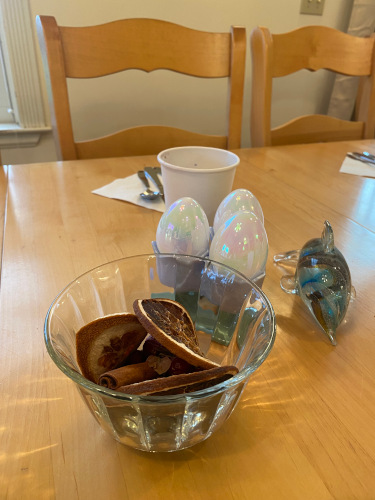
“Civilization,” I said, “is such a scam. It’s all about affiliations, and school. And pleasing other people.”
Leilani bobbed up and down, yes.
. . . She knew. Her mind was tremendous. The way Leilani thought, she was always three steps ahead of you. People from the university were always evaluating her intelligence, yet the essence of it was impossible to pin down in some academic test—because her intellect was all intuitive.
—Allegra Goodman, Paradise Park
Understandably, no one wants to be trapped.
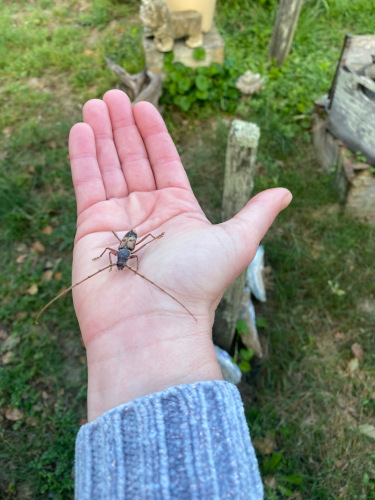
. . . It was amazing how the so-called necessities of life turned out to be so forgettable. Like newspapers, or plumbing, or cars. None of that mattered. And that’s what I loved.
. . . There they lived in their giant aviaries in total harmony—since all their basic needs were taken care of. But if the structure is imposed from the outside, how can a place be a true utopia? A real paradise, that would have to come from inside the birds themselves; that would come from their own hearts. . . . And how can you even begin to have a breakthrough when your forest canopy is all you have, and you can never rise above it, due to the roof of your glorified cage?
—Allegra Goodman, Paradise Park
So I take us outside.

In fact no one can be trapped forever.
The captive raised her hand and pressed it to her brow;
“I have been struck,” she said, “and I am suffering now;
Yet these are little worth, your bolts and irons strong:
And, were they forged in steel, they could not hold me long.”
—Emily Bronte, “The Prisoner”
Just respect that my flesh is tender and already scarred.
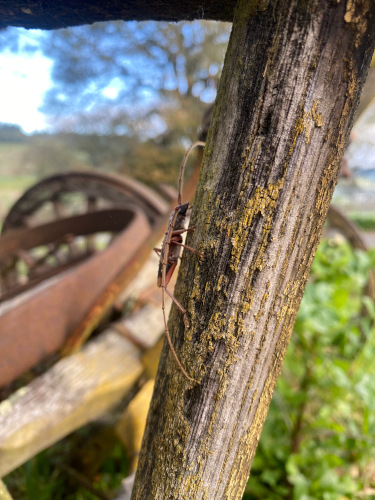
This is a taste of the honey I have to offer one who can receive it gently.
. . . Nothing tells the truth better than my tears.
What wouldn’t I give to sit with each one of them at the same time? Every tear that ever rivered out my eyes filling flower vases, sea glass bottles, bear-shaped honey jars. Oh the thank yous I would whisper to the tears wiped from my face by other people’s tender hands. The backflips I would do to celebrate the proof that the tears I cried for grief and the tears I cried for beauty were the same. Because of that, I no longer wish away my hardest days. Spinning out, a kind of pirouette. Losing hope, a kind of rest.
I’ve spoken so much about my joy these past years, I sometimes fear I’ve not spoken enough about the tears that got me here. How my therapist said, You can’t shut yourself off to grief without also shutting yourself off to joy. Think of it like a kink in a hose. Stop the flow of sadness, you stop the flow of happiness at the same time.
—Andrea Gibson, “The Tears That Got Me Here"

Stories are going on beyond and beneath things.
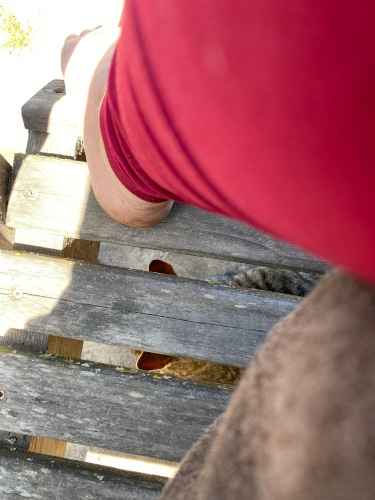
This one opened my floodgates:
I leaned over the side of the boat. I sent my thoughts down into the water: “I can see how you wouldn’t want to come up with all these people around. Why should you? It’s crass. It’s worse than that. It’s the descendants here of the folks who killed your ancestors. What a sick little world.” But I was also thinking, Please, please come. I was thinking, Whale, please show your face here, because we need you. We do. I was thinking, Please, whale, come out, because there are some people here who miss your presence. . . .
Then I saw them. Two clouds coming up from underneath the sea, and they were two whales, big ones, and they came up like these black clouds from underneath, enormous but swift, from right under the boat. And suddenly everyone was on top of me and Wayne; they were pushing and squishing us against the railing, and there were cameras and the announcer was talking, but I didn’t even notice. . . . The shadows were melting back under the water.
Then one whale came back. The whale’s flukes began to lift. Our boat was still. The whole vessel was frail next to her. She was massive as a building, and almost close enough to touch. In a rush her flukes came up. Our boat rocked backward. It was as if the whole ocean slid back for an instant, the surface of the water sliding off and opening as that tail reached and tipped itself. It was as if the whole ocean was sliding open. And I saw something there. The world was big, not little. The place was deep. The sky swung back in liquid gold, the air mixed with the water. I saw something. It was a whale, but not just the whale. It was a vision. It was a vision of God.
I was shivering, just in pure terror; just in shock—because all of a sudden I’d seen it—all the power under the world, all this presence and wisdom that wasn’t human.
. . . I wouldn’t go out anymore. No dinners, no movies, no more Kailua Drive-in. No more bar-hopping in Waikiki. I wouldn’t even sleep with Wayne anymore.
Wayne tried to be patient with me, but I was not back to my old self. I was just not the same.
—Allegra Goodman, Paradise Park
From there, the Beloved sends messages.
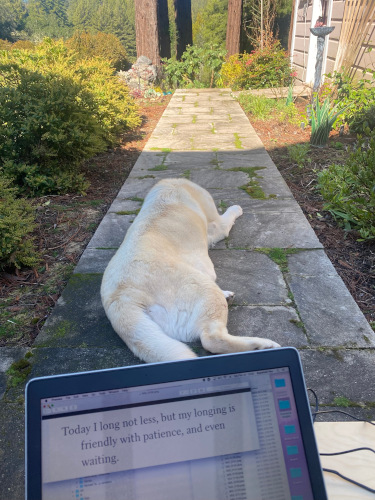
Why is loving someone who doesn’t love me back a sad tune? Isn’t the one who loves, the one who is lucky?
—Andrea Gibson, “The Birds Wrote Me a Poem”
Their spirit shines in strings of lights.
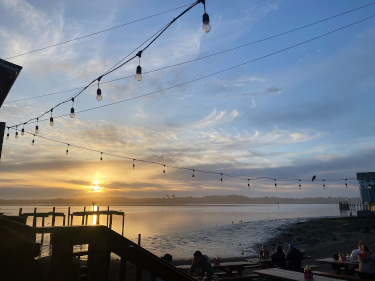
we’re seeing fishboy romance levels at about 73%
—levelbot (@levelbot@mastodon.social)
Their soul speaks from the setting Sun.
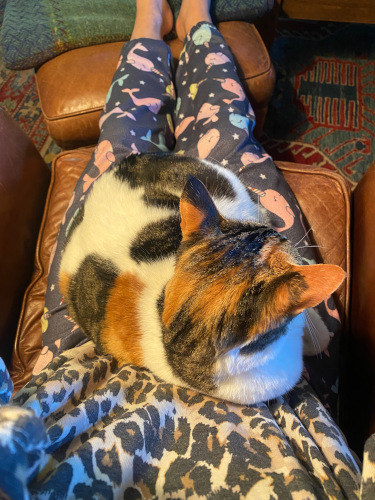
The scale and spread of ant societies is a reminder that humans should not confuse impact with control. We may be able to change our environment, but we’re almost powerless when it comes to manipulating our world exactly how we want. . . .
[Biosphere 2’s] giant terrarium in the Arizona desert, funded by a billionaire financier in the late 1980s, was intended as a grand experiment and model for long-distance space travel and colonisation. It was designed to be a self-sustaining living system, inhabited by eight people, with no links to the world’s atmosphere, water, soil. Except that, soon after it began operations in 1991, the black crazy ant (Paratrechina longicornis), a unicolonial species originally from southeast Asia, found a way in, reshaped the carefully engineered invertebrate community inside, and turned the place into a honeydew farm.
—John Whitfield, “Ant Geopolitics”
Their colors change as Autumn comes on, when at last you gain full access to the three-flavored honey of love, trust, and respect.
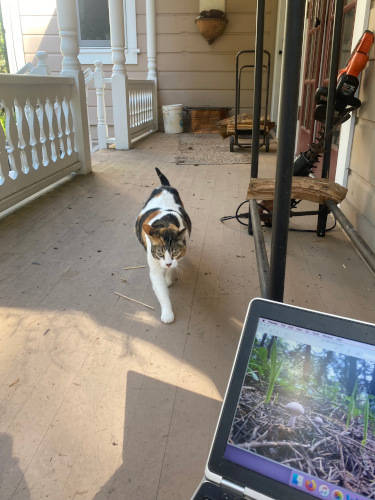
Keep some room in your heart for the unimaginable.
—Mary Oliver, Evidence
I, for one, say we follow in golden footsteps.
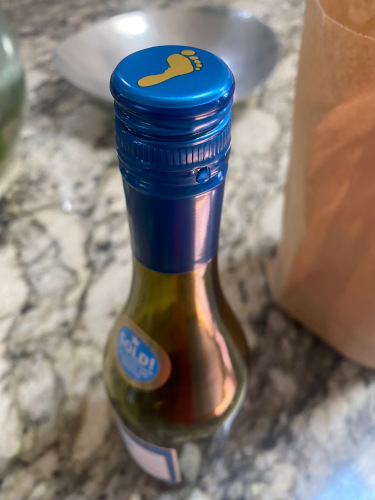
“Mother!” she said. “Giving the boy honey. You’ll rot his teeth.”
Old Mrs. Hempstock shrugged. “I’ll have a word with the wigglers in his mouth,” she said. “Get them to leave his teeth alone.”
—Neil Gaiman, The Ocean at the End of the Lane
I think that’s how we outgrow the hard road.
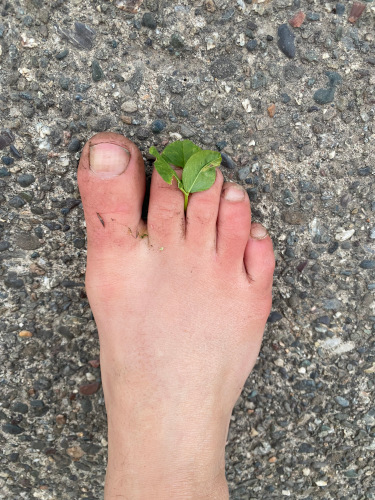
The point of this whole sojourn into the material world is to become attached. . . . It is to build relationships with people and matter, relationships that grow us, relationships that always end in grief because they cannot last forever. We are here to love and to lose and to love again. That is why, when life fills up with objects that required little effort to obtain, we feel less present, less alive, and hungry for something consumer culture cannot name.
. . . The unfulfillment of vapid consumption feels akin to that of casual sexual encounters. The human sex drive seeks something more than momentary gratification. It seeks to attach. It seeks to create. It seeks relationship. It seeks family.
A friend of mine is extremely wealthy—the majority shareholder of a billion-dollar company. His grandfather lives in a nursing home. Every day, my friend makes breakfast for his grandpa and drives it over himself to the nursing home to feed it to him. He could easily hire someone to do all that, but he is somebody who understands what real wealth is. The spiritual dividend from his “investment” in his grandfather is a kind of wealth that fires cannot burn and thieves cannot steal.
. . . A great paradox of modern life is that, despite its unprecedented efficiency, despite the centuries of inventions to save us time, we have less time than ever. We are the first culture in history to be so poor that millions of us cannot attend to the most precious, intimate moments of life.
—Charles Eisenstein, “Machines Will Not Replace Us”
Maybe we’ll even taste a golden paradise.
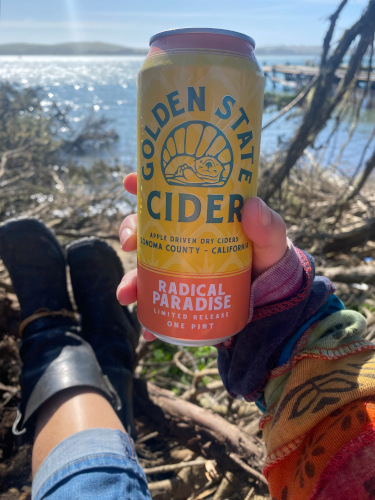
All has been thought of. I did not want to tell you everything at once, as we feared the shock of such happiness coming after such misery might be too much for you, it sometimes has that effect. But a good home has been provided for you . . . and once you have gone there you may leave the sad past behind you . . . . It will be a new life.
—Margaret Atwood, Alias Grace
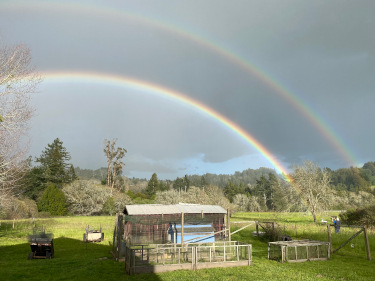
. . . They were surrounded by a golden haze, as if gold dust had fallen down out of the sky all over them . . . .
—Margaret Atwood, Alias Grace
We might, in fact, fly.
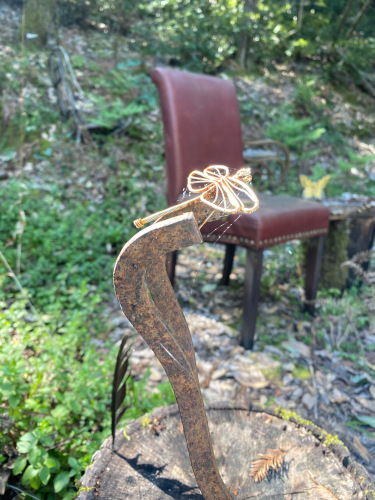
As kingfishers catch fire, dragonflies draw flame;
—Gerard Manley Hopkins, “As Kingfishers Catch Fire”
The point is not to reach the Sun, which would be disastrous, but to explore your very own ray.
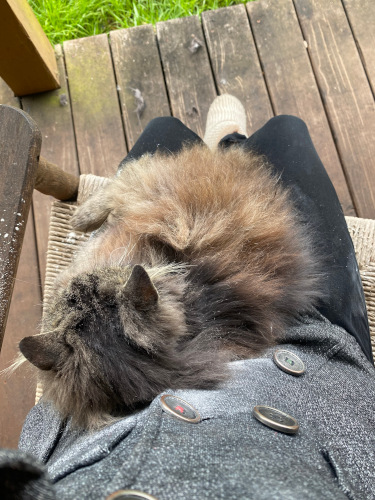
After that night I stopped feeling sorry for myself. I forgave everybody, even the mites.
—Allegra Goodman, Paradise Park
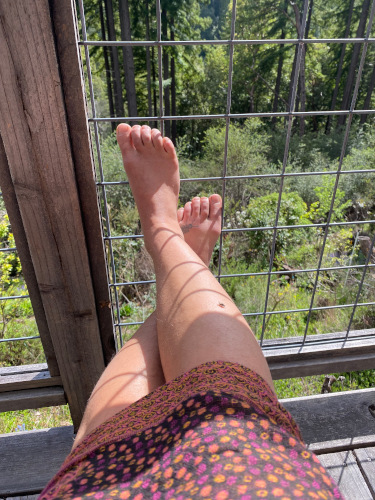
Perhaps we’ll find ourselves fully aligned.
And there we were, in a kind of harmony; and the evening was so beautiful, that it made a pain in my heart, as when you cannot tell whether you are happy or sad; and I thought that if I could have a wish, it would be that nothing would ever change, and we could stay that way forever.
—Margaret Atwood, Alias Grace
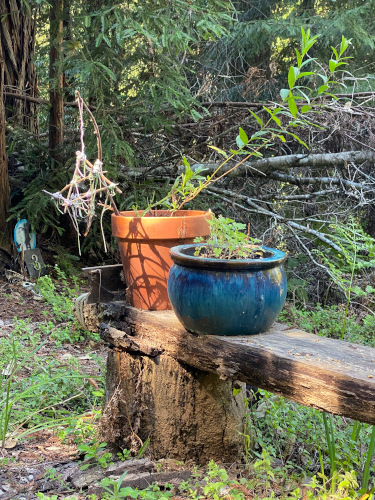
The key to our coherence together was our deeply felt, deeply shared purpose. . . .
—Tom Atlee of The Co-Intelligence Institute
Open toward the same warmth.

“And I was thinking, maybe lighting candles is like sending up a flare. Maybe there really are a lot of other worlds out there. Maybe we’re just part of an archipelago stringing out into space, and maybe all our acts are truly connected with the infinite.”
—Allegra Goodman, Paradise Park
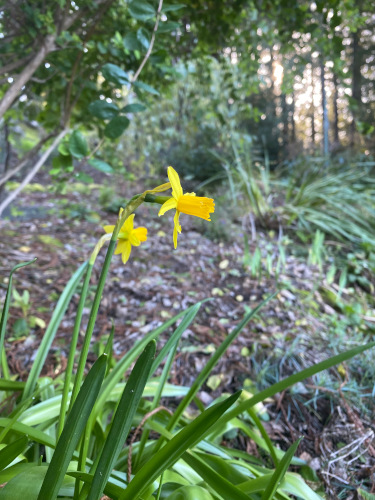
Come, see
real flowers
of this painful world.
—Matsuo Basho
Our ship asail over waters troubled or true.
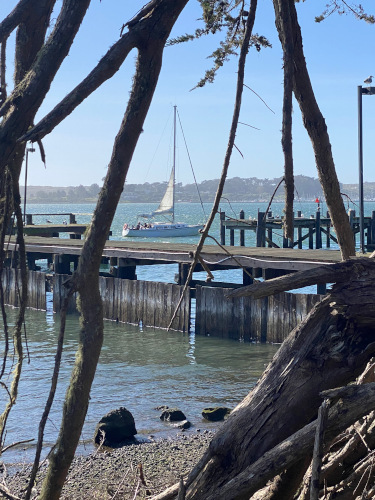
In conclusion, he wished to say that every ship afloat had a rat or two aboard, and this was a sign of luck because it was the rats who knew first when a ship was fated to sink, so he did not want to be bothered about it, should some well-bred lady happen to catch sight of one.
—Margaret Atwood, Alias Grace
Hand in hand.
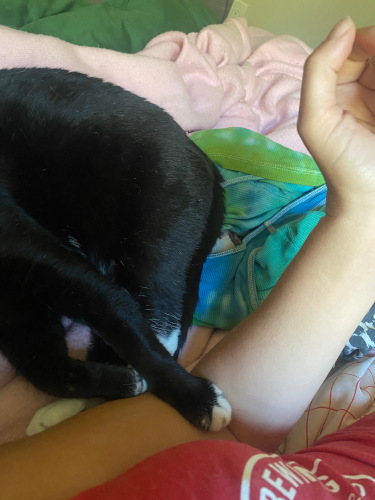
I hope we do.
It was such a quiet act of kindness. The simplest and most articulate of gestures, but, at the same time, it meant more than all that anybody had tried to tell me . . . because of the failure of language in the face of catastrophe.
—Nick Cave, Faith, Hope and Carnage
She said, “Just keep holding my hand. Don’t let go. Whatever happens, don’t let go.”
Her hand was warm, but not sweaty. It was reassuring.
—Neil Gaiman, The Ocean at the End of the Lane
Even in darkness, we’ll know the peace of true companionship.

So I guess then a new seed was planted in me, but I didn’t know it. I hardly believed in seeds anymore. If I did see one I thought the worst of it. Whereas before when I was so naive I assumed just about any stray idea could possibly turn into a gorgeous flowering shrub, now I’d think—Well, you never know.
—Allegra Goodman, Paradise Park
We might even wish to stay with the darkness.
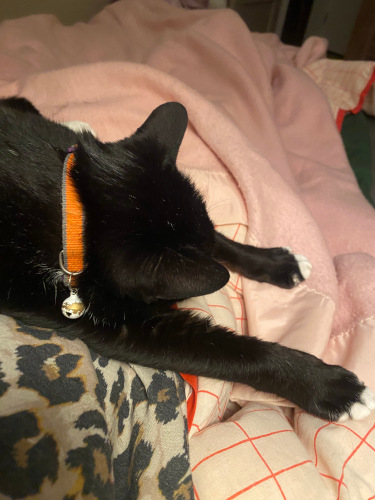
The darkness, so full of understanding, might wish to stay with us.
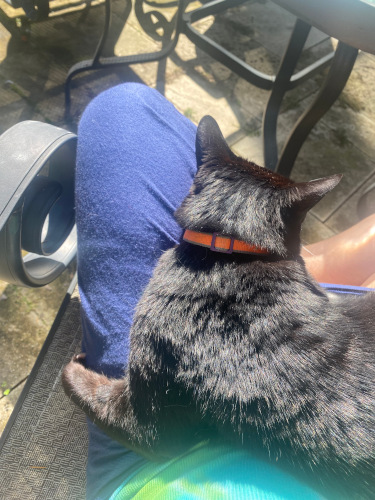
Sometimes the joy can be almost too much.
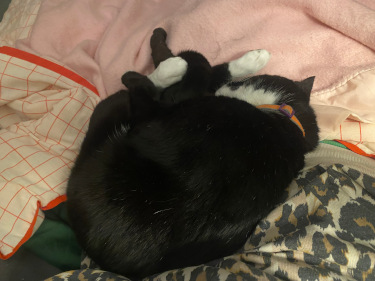
But only almost.
“I’m the one,” I said. “I’m the one who all of a sudden upends the apple cart. I don’t even know why. Whatever happened to the person I used to be, who used to meditate?”
Jane just squinched her eyes shut as I rubbed her front, since cats do not tend to empathize much with guilt and self-loathing.
—Allegra Goodman, Paradise Park

We were walking beneath a canopy of apple-blossom then, and the world smelled like honey.
—Neil Gaiman, The Ocean at the End of the Lane
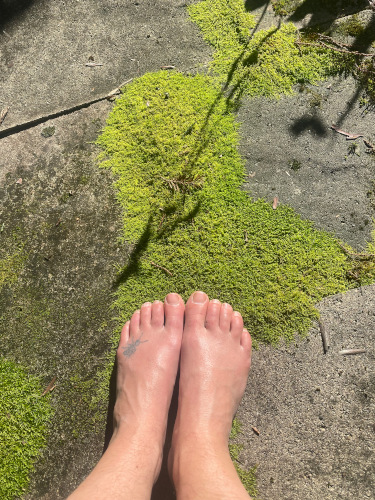
The point I want to make is that despite the hardships these challenges brought, my bond with the land and nature always revived my joy. Nature taught me resilience, and how to move on after every single tear and find my joy again.
—Gurdeep Pandher, “The Joy of Visiting My Roots and the Importance of Becoming a Citizen of the Universe”
I abandon myself to joy—
I laugh—I sing.
Too long have I walked a desolate way,
Too long stumbled down a maze
Bewildered.
—Clarissa Scott Delaney, “Joy”
Not that there’s anything wrong with bewilderment.
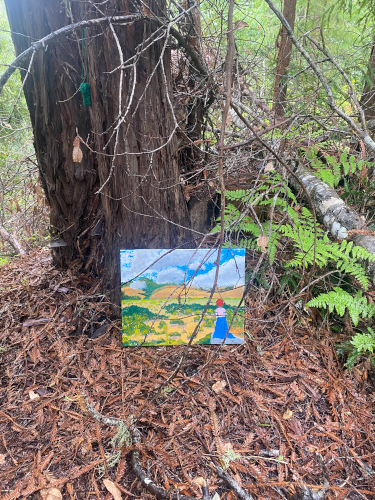
Love is the ark appointed for the righteous,
Which annuls the danger and provides a way of escape.
Sell your cleverness and buy bewilderment.
Cleverness is mere opinion, bewilderment intuition.
—Jalal al-Din Rumi
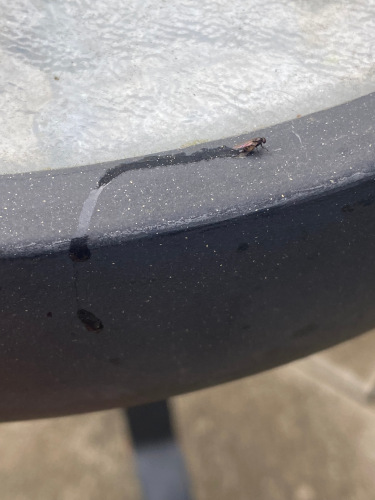
The sun was shining and every stone of the wall seemed as clear as glass and lighted up like a lamp, it was like passing through the gates of Hell and into Paradise, I do believe the two are located closer together than most people think.
—Margaret Atwood, Alias Grace
At some point, all must leave the darkness and come into the light, at least for a while.
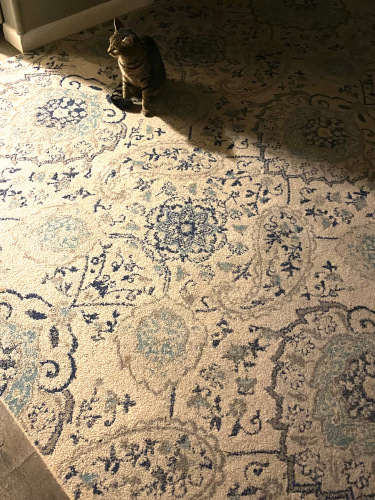
Fortunately, none of us can lose ourselves permanently here, because of the pre-programmed safeguard we call death.
—Charles Eisenstein, “Machines Will Not Replace Us”
Light has its own beauty.
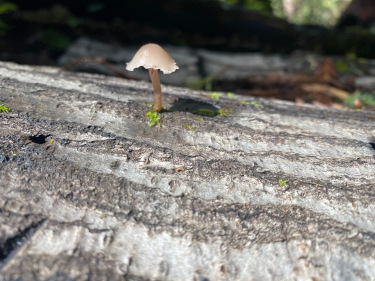
[Artists] live at times in their rare moments of happiness with such strength and indescribable beauty, the spray of their moment’s happiness is flung so high and dazzingly over the wide sea of suffering, that the light of it, spreading its radiance, touches others too with its enchantment. Thus, like a precious, fleeting foam over the sea of suffering arise all those works of art, in which a single individual lifts himself for an hour so high above his personal destiny that his happiness shines like a star and appears to all who see it as something eternal and as a happiness of their own.
—Herman Hesse, Steppenwolf
We’ll take our time.
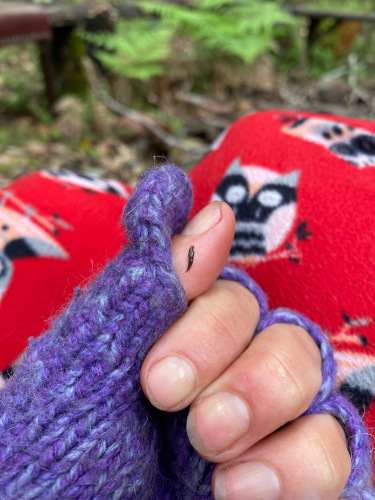
There’s no rush.
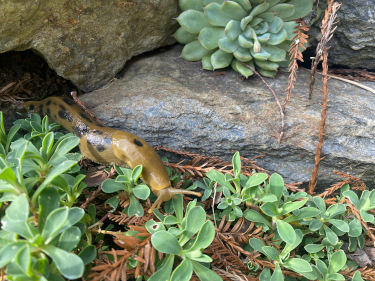
We all know how the years revolve quicker and quicker as we get older, until, with the approach of old age, they slow down again because we begin to measure them against the psychologically and somatically anticipated date of our departure.
—Hannah Arendt, The Life of the Mind
Darkness and light are in fact cozy with each other.
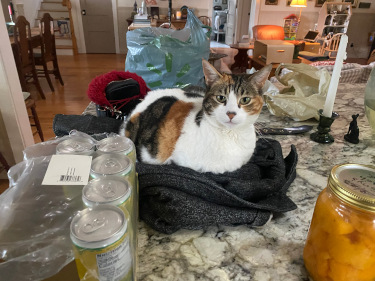
. . . This is the stuff of life, this is why we are here, living. The time we have is short, the people we want to do things with are not promised for tomorrow. You will never be as young, capable and healthy as you are today. Things change. Right now you have opportunities sitting in front of you and if you say yes, you will experience, you will change, you will face fears, you will complete things and you will make memories.
. . . At the same time, it seems like we are all so tired. Like, deep tired. Like soul tired. . . . You are changing a long line of choices and behaviors that hurt and caused damage generation after generation. . . .
Find what really calls you that you want to live, bring into the world and experience. Rest a lot. In between, take steps toward those things. If you want land out west, start looking at land. . . .
The world needs what you have to offer now more than ever.
—Amanita Dreamer, “Early April” 2024 newsletter
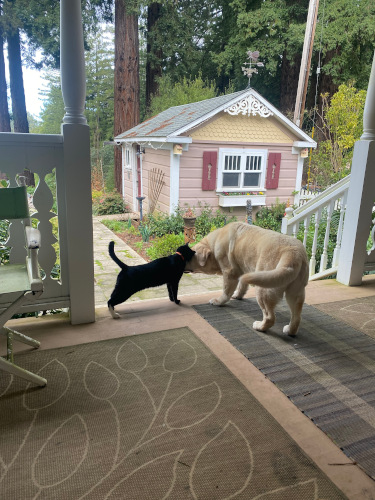
“The concept of a binary separation of life and death is incredibly antiquated,” Parnia told me at a recent live event at the Morgan Library in New York City. He’s an intensive care physician at the NYU School of Medicine and one of the world’s leading experts on resuscitation medicine.
—Steve Paulson, “The Blurred Line between Life and Death”
After emerging into the light and searching fruitlessly, the Beloved is delivered a withering leaf.
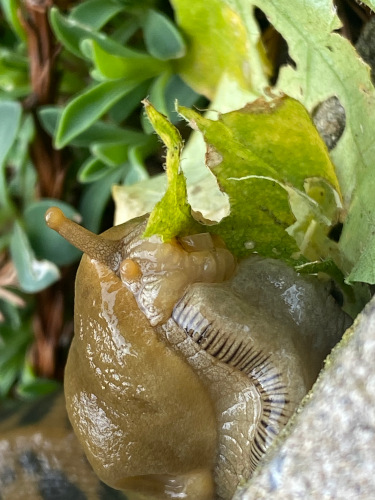
. . . Death is very likely the single best invention of Life. It is Life’s change agent. It clears out the old to make way for the new.
—Steve Jobs, 2005 graduation address at Stanford University
I cannot convince you not to feel guilty if you forget the anniversary of my death, or if you realize days or weeks or months have gone by without thinking of me.
I just want you to live.
—Adam Silvera, They Both Die at the End
Something more is going on here than meets the eye.
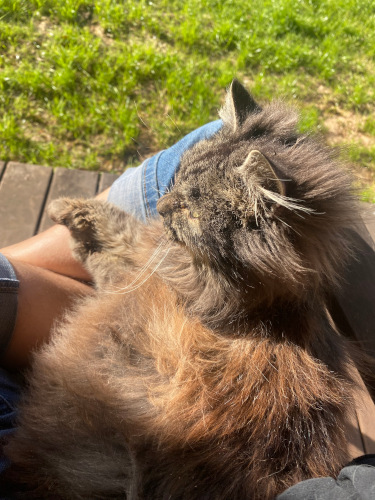
This bit of fluff, a runt with less than the usual allotment of intellect, is spared by predators—inexplicably protected.
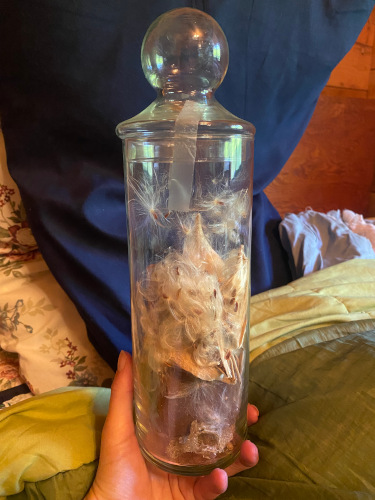
Most of the work had already been done. She saw that she was almost free, and to take the last step felt kind of terrible, but not terrible in a bad way, if that makes any sense.
—Jonathan Franzen, Freedom
A Seer—Seen, a Seed—is freed.
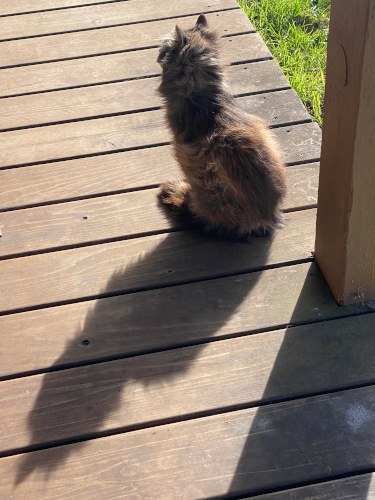
To be truly vulnerable is to exist adjacent to collapse or obliteration. In that place we can feel extraordinarily alive and receptive to all sorts of things, creatively and spiritually. . . . It is a nuanced place that feels both dangerous and teeming with potential. It is the place where the big shifts can happen. The more time you spend there, the less worried you become of how you will be perceived or judged, and that is ultimately where the freedom is.
—Nick Cave, Faith, Hope and Carnage
Properly deposited, given the right conditions, seeds hatch.
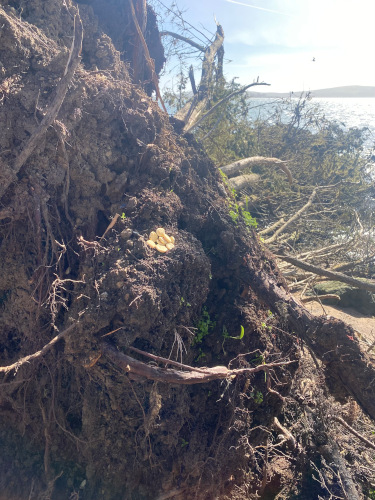
. . . He motioned me over to him, and gave me an extra bone button, to go with the four I’d bought. He put it into my hand and folded my fingers over it, and his own fingers were hard and dry, like sand; but he peered into my hand swiftly first; and then he said, Five for luck; for people of that kind consider four an unlucky number, and odd numbers luckier than even ones. And he gave me a quick and intelligent look with his shining black eyes, and he said, quite low so that the others did not hear it, There are sharp rocks ahead. Which I suppose there always are, Sir, and there had certainly been enough of them behind, and I had survived them; so I was not too daunted by that.
But then he said the strangest thing of all to me. He said, You are one of us.
And then he shouldered his pack and took up his staff, and walked away; and I was left wondering what he’d meant.
—Margaret Atwood, Alias Grace

Maybe I’m all I’m cracked up to be.
It was like becoming all crumbly, and cracking your outer shell—but not in a crazy way, not like turning into some kind of volcano spewing red hots, but rather, feeling your mind and your whole spirit becoming porous inside, like a malted milk ball.
. . . I felt this calm desolation, as though I had died.
—Allegra Goodman, Paradise Park
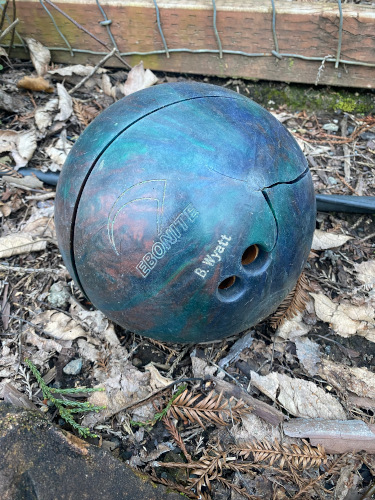
That was the year I dug out a wart from my knee with a penknife, discovering how deeply I could cut before it hurt, and what the roots of a wart looked like.
—Neil Gaiman, The Ocean at the End of the Lane
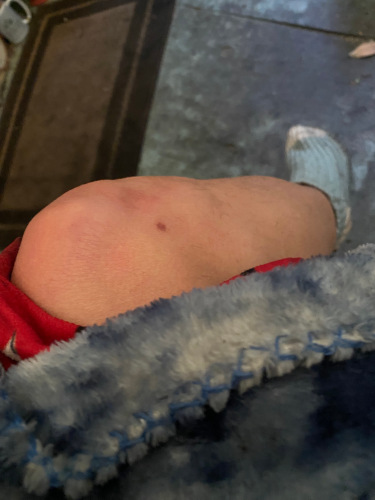
It was almost all out of me—I could feel it—but I was too confident, too triumphant, and impatient, and I tugged too quickly, too hard, and the worm came off in my hand. The end of it that came out of me was oozing and broken, as if it had snapped off.
. . . The place on the sole of my foot where the worm had been throbbed and ached, and now my chest hurt too.
—Neil Gaiman, The Ocean at the End of the Lane
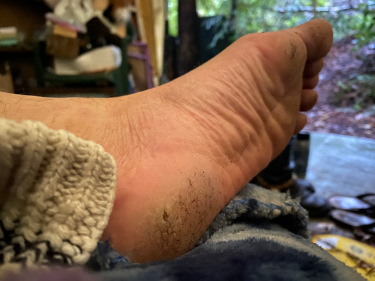
“. . . Were you scared, up here on your own?”
“Yes.”
“Did they try and get you out of the circle?”
“Yes.”
. . . “But you stayed where you were meant to be, and you didn’t listen to them. Well done. That’s quality, that is.” And she sounded proud. In that moment I forgot my hunger and I forgot my fear.
—Neil Gaiman, The Ocean at the End of the Lane
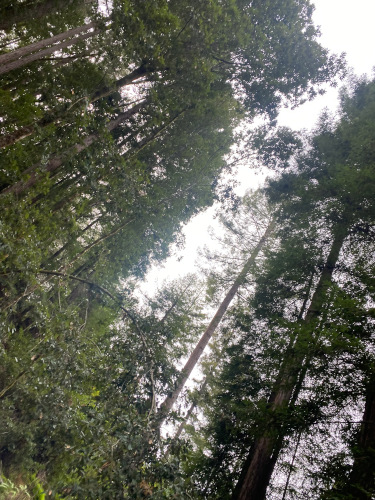
I think you should come away with me, Grace, he said. I don’t like the feel of things. . . .
At that I gave a shiver, for it was close to what I myself had been feeling, although I did not know it until then. But what would I do? I said.
You could travel with me, he said. You could be a medical clairvoyant . . . .
—Margaret Atwood, Alias Grace
Maybe this risk has been in service to those I love most.
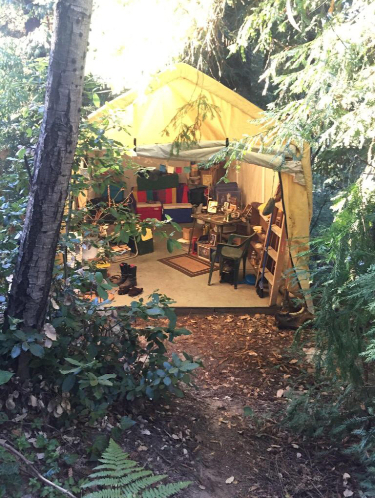
She said, “We’ve gone further than I imagined. Further than I expected. I’m not really sure what kinds of things live out here on the margins.” . . .
I thought I was looking at a building at first: that it was some kind of tent, as high as a country church, made of gray and pink canvas that flapped in the gusts of storm wind, in that orange sky: a lopsided canvas structure aged by weather and ripped by time.
. . . I felt as if it was examining me, taking me apart. As if it knew everything about me—things I did not even know about myself. . . .
Rainy nights were the best of all: I would open my windows and put my head on my pillow and close my eyes and feel the wind on my face and listen to the trees sway and creak. There would be raindrops blown onto my face, too, if I was lucky, and I would imagine that I was in my boat on the ocean and that it was swaying with the swell of the sea.
—Neil Gaiman, The Ocean at the End of the Lane
Maybe now I’m coming out of the bag.
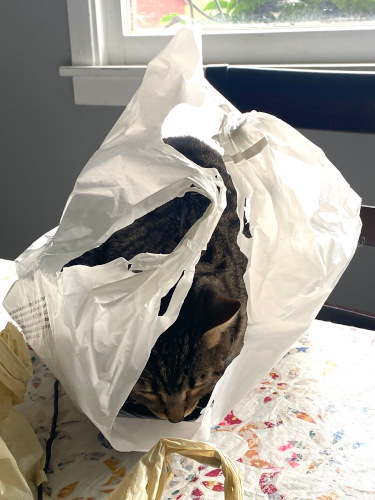
Lettie squeezed my hand. “She’s going to make the hole go away,” she said. “I’ll hold your hand.” . . .
My heart pounded strangely. . . .
I said, “I’m sorry I let go of your hand, Lettie.”
“Oh, hush,” she said. “It’s always too late for sorries, but I appreciate the sentiment. And next time, you’ll keep hold of my hand no matter what she throws at us.”
I nodded. The ice chip in my heart seemed to warm then, and melt, and I began to feel whole and safe once more.
—Neil Gaiman, The Ocean at the End of the Lane
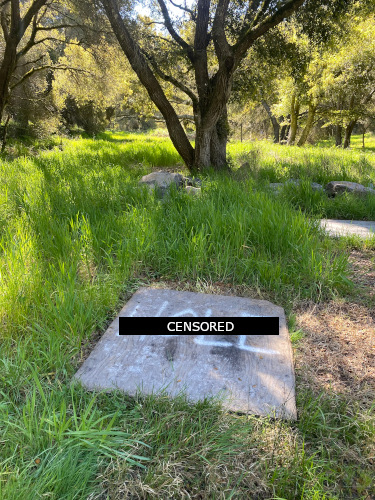
I have woven a parachute out of everything broken;
—William Stafford, “Any Time”
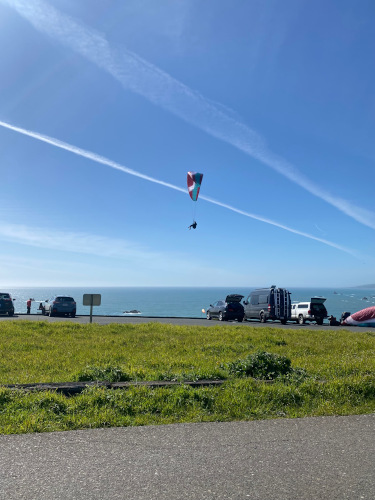
That next afternoon, in Room 21, in broad daylight, with the windows open and the faded curtains billowing, they laughed and cried and fucked with a joy whose gravity and innocence it fairly wrecks the autobiographer to think back on, and cried some more and fucked some more and lay next to each other with sweating bodies and full hearts and listened to the sighing of the pines. Patty felt like she’d taken some powerful drug that wasn’t wearing off, or like she’d fallen into an incredibly vivid dream that she wasn’t waking up from, except she was fully aware, from second to second, that it wasn’t a drug or a dream but just life happening to her, a life with only a present and no past, a romance unlike any romance she’d imagined.
—Jonathan Franzen, Freedom